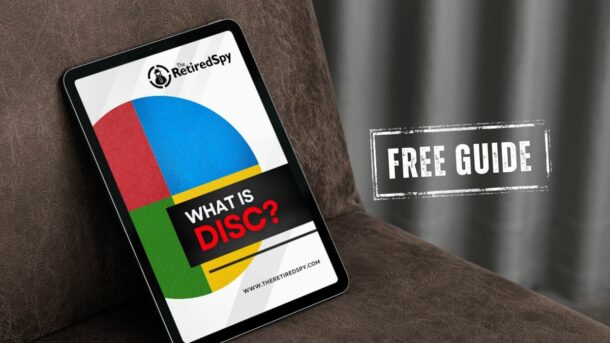Watch the full podcast interview with Dale Sidebottom here.
Imagine if you could understand yourself and others on a deeper level, leading to more harmonious relationships and better communication skills. That’s precisely where the DISC model comes into play. The DISC model is not just another personality assessment tool; it’s a powerful framework that can unlock personal growth and interpersonal success.
And the exciting part is that teaching this model to people at a young age sets them up for a lifetime of benefits. Teaching the DISC model early in life instills a solid foundation for effective communication, conflict resolution, and self-awareness. It’s like giving people of all ages the keys to unlocking healthier relationships, enhanced productivity, and a happier, more harmonious existence.
Whether you’re a parent, teacher, or mentor, introducing the DISC model early on can empower young minds to navigate life’s complexities with empathy and adaptability. The DISC model is a timeless tool that holds immense value for individuals of all ages, making it a must-have skill in today’s diverse and interconnected world.
About the DISC Model
Picture the DISC model as your personalized decoder ring to human behaviour. This ingenious tool has been around for decades, rooted in the work of psychologist William Moulton Marston.
It all starts with four distinct personality traits: Direct, Inspiring, Supportive, and Cautious, which make up the acronym DISC:
- Direct personalities are the go-getters or leaders who thrive on challenges.
- Inspiring folks are the life of the party, creative sparks who love to motivate.
- Supportive individuals are the empathetic listeners, the ones who make great friends.
- Cautious types are the analytical thinkers and meticulous planners who never miss a detail.
For years, DISC has been a helpful tool in many industries, particularly for profiling and assessment purposes. A DISC Research Report also found it to be accurate after 90 percent of its participants agreed with the narrative descriptions of their styles.
Another research study also found it to be a valuable resource for people to understand their strengths and areas of improvement, which is essential for recruitment, team building and enhancing employee motivation.
You can read more about DISC here.
Using the DISC Model at an Early Age

Now, the value of the DISC model was something I realized after my years of experience as a contact handler in Bosnia-Herzegovina. And, for me, it was more like an essential instrument and crucial asset that I wish I had known at a young age. Looking back, applying this tool not only allows me to navigate through varying environments, but it’s also a force multiplier that magnifies your capabilities to strengthen personal and professional relationships.
Because of this epiphany, I realized it’s my job to teach it to my son and daughter while they’re still in their formative years so they can equip themselves with its benefits in the long run.
My daughter would apply it at school in her day-to-day activities, observing other people like her teachers and peers to determine the best way to approach or converse with them. And because of that, she gained the confidence to meet people at their level, which is something that she was also able to bring with her growing up.
So, it became more apparent to me the value of this model. Not only does it boost a child’s self-esteem, but it also helps them maintain an unbiased point of view of things, allowing them to assess the bigger picture and figure out the most suited response.
Studies have shown the positive effect of teaching the application of the DISC model for children in their early years. One of them found that behavioural profiling tools like DISC and activities within sports management and sports coaching curricula can enhance a student’s self-awareness and help develop leadership skills, preparing them for future career opportunities.
Some of the benefits the study found include developing a deeper awareness of personal behaviour, understanding communication tendencies, and adapting their skills to maximize performance in team-based work.
Wrapping it Up
It becomes abundantly clear that this tool isn’t just a passing trend; it’s a beacon of wisdom that transcends generations. The DISC model has proven to be an invaluable guide for understanding ourselves and others on a deeper level over the years. Its significance lies not only in its enduring relevance but also in the profound impact it can have when introduced to people, especially during their transformative years of childhood.
These years are a critical period in an individual’s life when personalities are being formed and core values are taking shape. Introducing the DISC model during this pivotal time is like providing a roadmap to self-discovery. It equips young minds with the self-awareness and emotional intelligence needed to navigate the challenges of growing up and forging relationships.
But aside from being a helpful tool for young children, the DISC model holds equal importance for individuals of all ages. In a world filled with diverse personalities and communication styles, deciphering and adapting to different behavioural tendencies is a valuable skill at any stage of life. It fosters empathy, effective communication, and conflict resolution, making it a powerful instrument for personal and professional growth.
With DISC, all of us can develop the capacity to take on the intricacies of life with compassion and appreciation for diversity.
Found this interesting? You might like these too…
Building Relationships by Design: How Strategic Statements Can Transform Your Relationships


